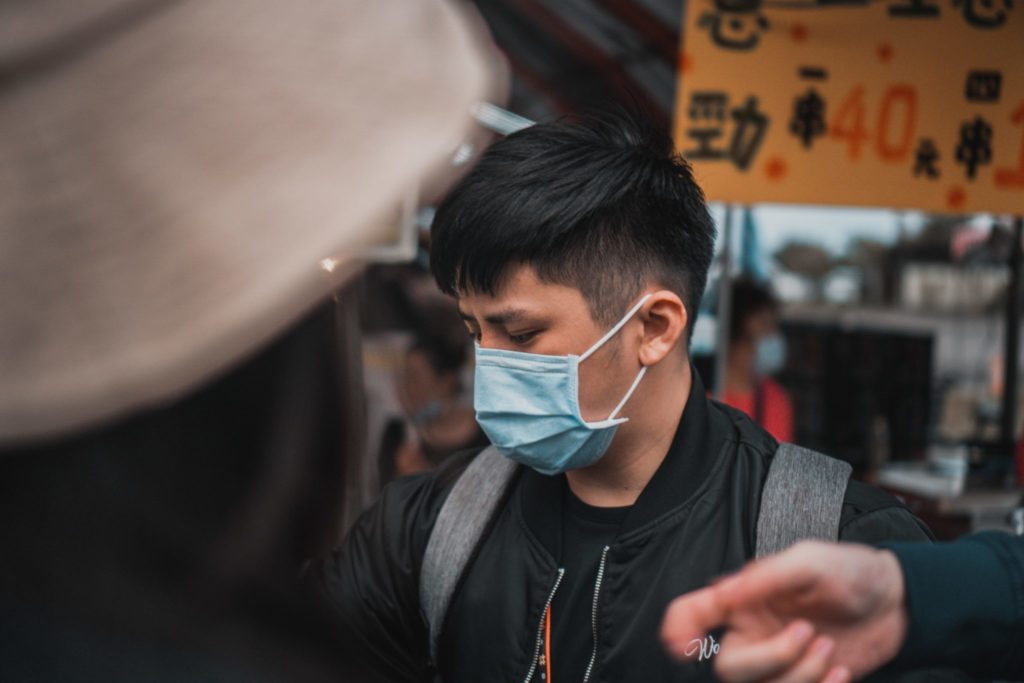Taiwan has been recognized internationally for its successful management of the COVID-19 pandemic, especially in the first year. But do people in Taiwan have the same perception of their own government’s response?
Taiwan is widely recognized for its successful management of the COVID-19 pandemic, especially in the first year when there was not a single locally transmitted case from April to December 2020. While the rest of the world was constantly struggling with the virus, Taiwan had the lowest per capita infection rates in the world, at least until April 2021. Throughout this time, Taiwanese citizens were able to go to restaurants and bars, travel, and attend public events. Success has been attributed to lessons learned from the mishandling of SARS in 2003 and a combination of timely case-related measures, such as testing, contact tracing, and quarantine, as well as popular support for these measures, including physical distancing and face masking.
Despite the initial success, Taiwanese are dissatisfied with their government’s overall response to the COVID-19 pandemic, as a recent survey shows.The Sinophone Borderlands online public opinion survey contacted more than 1,350 Taiwanese respondents between April-June 2022 on various issues pertaining to perceptions of China, including in the COVID-19 pandemic era. Respondents were drawn from all regions of Taiwan and included a representative sample of age groups and genders.
The results show that only 21% of people are satisfied with their government’s response to the pandemic, while 54% of respondents are dissatisfied (see Chart 1). Also, while it initially looked like Taiwanese agreed with phone tracking to prevent the spread of the virus, the data shows that by the summer of 2022, only 29% agreed, 38% were in the middle and 33% disagreed (see Chart 3).
Chart 1: How satisfied are you with your government’s response to COVID-19 Pandemic?
Regarding the handling of the pandemic in the EU and US, about 50% of Taiwanese respondents believe that they were successful (see Chart 2). On the other hand, 64% respondents consider China’s handling of the pandemic unsuccessful.
Chart 2: How successful did the following countries handle the COVID-19 pandemic?
According to the survey, some 40% of Taiwanese respondents believe that China’s international reputation has deteriorated as a result of the COVID-19, while only 16% think it has improved. Finally, only about 23% believe that China has gained economically from the COVID-19 pandemic, the rest disagree (37%) or neither agree nor disagree (40%) (see Chart 3).
The survey also suggests that Taiwanese are more inclined to blame China for the spread of the virus, as evidenced by the 43% who believe COVID-19 was artificially created in a Chinese lab and deliberately spread. The Chinese narrative claiming COVID-19 was brought to China by the US military in 2019 convinced only 14%. Regarding news about the transmission of the virus, 24% believe that COVID-19 jumped naturally from animals to humans, 34% do not believe in that and a large proportion (41%) are undecided (see Chart 3).
Chart 3: To what extent do you agree/disagree with the following statements?
In the case of vaccines, Taiwanese people consider them the best way to defeat the pandemic – with only 17% disagreeing (see Chart 3). This might be the reason for such a strong push for obtaining vaccines. However, in 2021, this task proved particularly difficult given the global vaccine shortage, and Taiwan’s limited international recognition and exclusion from discussions on global health issues.
When China offered vaccines to the island, the Taiwanese government rejected it, as it considered it an attempt by Beijing to force Taiwan to rely on China for access to vaccines. Several opposition figures, mostly from the traditionally more China-friendly Kuomintang (KMT) or parties favoring unification, called on the Taiwanese government to make a deal with China and import the vaccines. However, as the survey shows, the majority of Taiwanese people distrusted Chinese vaccines:only 19% said they are willing to receive a Chinese-made vaccine. Similarly, vaccines from Russia and India were rejected by more than 70% of Taiwanese in the survey. On the other hand, a strong preference was shown for vaccines from the US, EU, Japan, and the UK (see Chart 4).
Chart 4. How willingly would you get a COVID-19 vaccine produced by:
Taiwan eventually received vaccines from Japan, the US and the EU. These were also the countries/entities that people indicated as being the most helpful. In the case of China, the numbers were small,despite Beijing’s efforts to build the image of a benevolent motherland.Only 23% of Taiwanese surveyed felt that China had helped Taiwan in the fight against the pandemic (see Chart 5).
Chart 5: How much did the following countries/entities help Taiwan during the COVID-19 Pandemic?
Although Taiwan’s successful handling of the pandemic has earned it recognition in the world, Taiwanese tend to view their government’s actions rather negatively. Interestingly, the West’s response to the pandemic is viewed far more positively, although the COVID-19 confirmed deaths per capita in the US and EU far exceed the figures in Taiwan. On the other hand, China’s handling of the pandemic is seen negatively, which corresponds with the tense relations across the Strait.
The views and opinions expressed in the article are those of the authors and do not necessarily reflect the official policy or position of any government organization or other entity.













